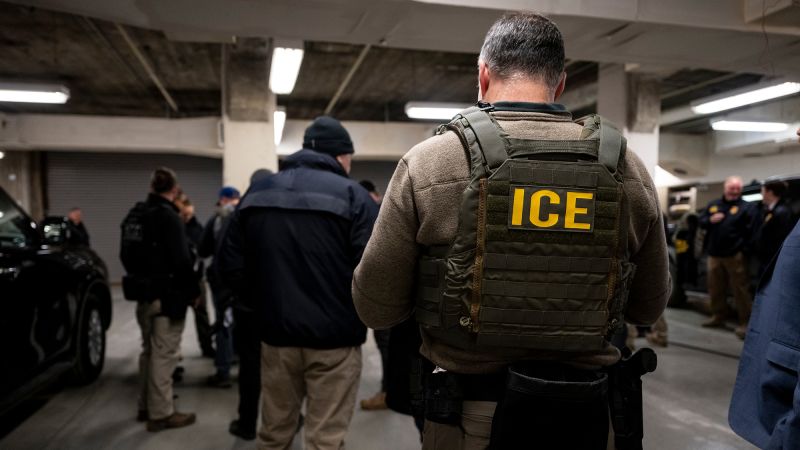A Critical Analysis Of Trump's Challenges To Global Order And Domestic Governance

Table of Contents
Trump's Upending of Global Order and Domestic Governance: A Critical Analysis
WASHINGTON, D.C. – Donald Trump's presidency (2017-2021) represented a significant departure from established norms in both domestic and international affairs. His actions challenged the existing global order and sparked considerable debate about the future of American governance. While supporters lauded his populist appeal and unconventional approach, critics pointed to detrimental consequences for international stability and democratic institutions. This analysis examines key aspects of his impact, focusing on specific policies and their ramifications.
Foreign Policy: A Rejection of Multilateralism
Trump's "America First" doctrine fundamentally reshaped U.S. foreign policy. He withdrew the U.S. from the Trans-Pacific Partnership (TPP), a landmark trade agreement designed to counter China's economic influence in the Asia-Pacific region. This move, celebrated by some as a rejection of globalization, was criticized by others for weakening U.S. alliances and ceding ground to China. Similarly, his decision to abandon the Paris Agreement on climate change, a multinational accord aimed at mitigating global warming, drew widespread condemnation and further eroded international trust in American leadership.
The Trump administration's approach to NATO, a cornerstone of transatlantic security, was also marked by ambiguity and criticism. While he repeatedly pressed allies to increase their defense spending, his rhetoric often cast doubt on the alliance's value and his willingness to uphold collective defense commitments. This led to concerns about the future of NATO's cohesion and its effectiveness in deterring potential adversaries. His meetings with North Korean leader Kim Jong Un, while unprecedented, yielded limited progress on denuclearization and were criticized for legitimizing a brutal regime. Relations with traditional allies like Canada and the European Union suffered strain due to trade disputes and disagreements over issues such as sanctions on Iran.
Domestic Governance: Erosion of Democratic Norms?
Trump's presidency was characterized by a highly personalized and often confrontational style of leadership. He frequently attacked the media, labeling unfavorable reporting as "fake news," which critics argued eroded public trust in legitimate journalism and fueled political polarization. His frequent use of Twitter to bypass traditional communication channels further contributed to this environment.
His appointments to the judiciary, particularly to the Supreme Court, shifted the ideological balance of the court significantly to the right. This had profound implications for the interpretation of key constitutional issues, including abortion rights, gun control, and campaign finance.
The events surrounding the January 6th, 2021 attack on the U.S. Capitol, where a mob of Trump supporters sought to overturn the results of the 2020 presidential election, represent a watershed moment in American history. The attack highlighted the fragility of democratic institutions and the potential for political violence when democratic norms are undermined. Trump's role in inciting the riot, while a subject of ongoing investigation and legal proceedings, remains a deeply divisive issue, with lasting implications for American democracy.
Economic Policies: Uncertain Impacts
Trump's economic policies, characterized by significant tax cuts and deregulation, had a mixed impact. While the tax cuts stimulated short-term economic growth, they also contributed to a ballooning national debt. His trade policies, including tariffs imposed on imported goods, led to trade wars with major trading partners, impacting global supply chains and causing uncertainty in the markets. The long-term consequences of his economic policies remain a subject of ongoing debate among economists.
Conclusion:
Donald Trump’s presidency left an undeniable and lasting mark on both the domestic and international landscape. His rejection of multilateralism, his confrontational style of leadership, and his challenges to democratic norms sparked significant debate and raised concerns about the future of American leadership and the stability of the global order. The long-term consequences of his actions continue to unfold, shaping the political and economic realities of the United States and the world. Further research and analysis are needed to fully understand the enduring impact of his administration.

Featured Posts
-
 Monitoring Online Assaults An Examination Of Digital Records
Feb 25, 2025
Monitoring Online Assaults An Examination Of Digital Records
Feb 25, 2025 -
 Israel Frees Hostages But Prisoner Exchange Stalled
Feb 25, 2025
Israel Frees Hostages But Prisoner Exchange Stalled
Feb 25, 2025 -
 Claerwen Reservoir Wetsuit Clad Body Remains A Mystery
Feb 25, 2025
Claerwen Reservoir Wetsuit Clad Body Remains A Mystery
Feb 25, 2025 -
 Sales Drop Sparks Talk Of Kennedy Center Show Cancellations By Artists
Feb 25, 2025
Sales Drop Sparks Talk Of Kennedy Center Show Cancellations By Artists
Feb 25, 2025 -
 Memo Exposes Trumps Intensified Deportation Efforts For Unaccompanied Children
Feb 25, 2025
Memo Exposes Trumps Intensified Deportation Efforts For Unaccompanied Children
Feb 25, 2025
Latest Posts
-
 No Clear Path Forward Government Agencies Respond To Musks Cryptic Email
Feb 25, 2025
No Clear Path Forward Government Agencies Respond To Musks Cryptic Email
Feb 25, 2025 -
 Trump Meets Macron A Crucial Summit For Us Europe Relations
Feb 25, 2025
Trump Meets Macron A Crucial Summit For Us Europe Relations
Feb 25, 2025 -
 Tom Brady And Irina Shayk Relationship Status Revealed
Feb 25, 2025
Tom Brady And Irina Shayk Relationship Status Revealed
Feb 25, 2025 -
 Far Right Surge As Conservatives Poised To Win German Election
Feb 25, 2025
Far Right Surge As Conservatives Poised To Win German Election
Feb 25, 2025 -
 Ukraine Conflict The Ongoing Struggle After Three Years
Feb 25, 2025
Ukraine Conflict The Ongoing Struggle After Three Years
Feb 25, 2025
